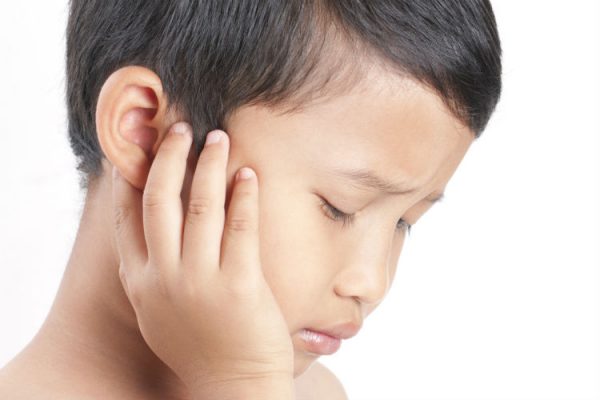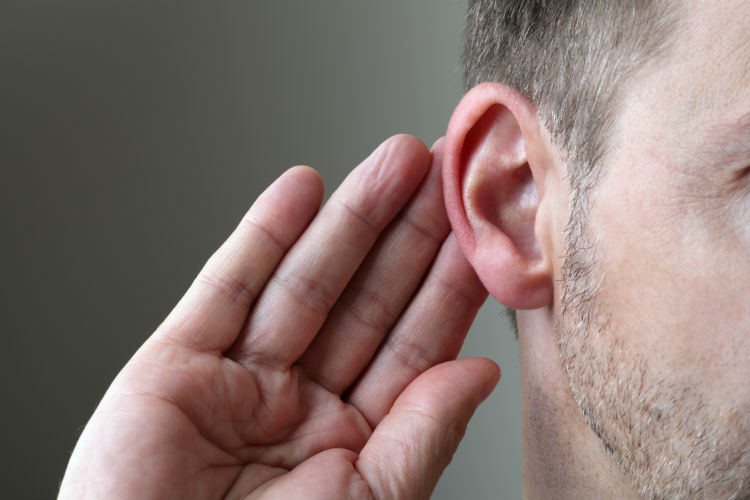No products in the cart.
Noise and health, Noise and hearing
You maintain your hearing throughout life, right?
Most people perceive the hearing as something permanent, a never-changing constant – so why should you have it tested? You may have experienced a short ringing after a concert, but it disappeared just a few days later, right? With this statement, Nikolai Bisgaard, Vice President of GN Hearing encapsulates one of the big challenges, resulting in many people suffering from untreated hearing impairments.
In Denmark alone, about 800,000 people suffer from hearing impairments. We want to learn more about what it means to be hearing-impaired and what can be done to bring it into focus. So we interviewed Nikolai Bisgaard, who has many years of experience in the hearing aid industry. He is for instance working with Public Affairs at GN Hearing and is part of the trade organisation.
Returning to the concert and the ringing in your ear – you will not necessarily become hearing-impaired from just one concert, Nikolai Bisgaard points out. He does not want to intimidate anyone, but stresses that there have been numerous examples of adolescents, developing permanent hearing impairments after standing in front of a speaker during a concert.
There is also correlation between the total amount of noise, which you expose your hearing to during youth and how early in life you develop hearing impairments.
Q: What do you do to bring hearing impairment into focus and raise the flag for healthy hearing?
” Among other things, we have participated in Folkemødet (The People’s Political Festival) for years with the initiative ’Mind your Hearing’ in collaboration with Dansk Musiker Forbund (The Danish Musicians Union), where musicians tell about how they made mistakes as to their hearing,” says Nikolai.
He underlines that musicians and kindergarteners are some of the professionals with most hearing impairments. He further tells that people got the chance to make a hearing test at Folkemødet, and that the visitors could try to adjust a headset to their normal noise level. Then, they could place the headset on a dummy that calculated how long during a day, you could expose your ears to the chosen noise level, if you wanted to prevent hearing impairments.
Q: What else can you do to bring hearing impairments into focus?
”The president of Dansk Høreforening (The Danish Association of the Hard of Hearing), who by the way is hearing-impaired herself, likes to say that we learn about a healthy diet and safe sex in school, but never about the importance of taking care of your hearing,” says Nikolai, underlining that it would be beneficial to teach school children from an early age that you need to take care of your hearing, for it to last a whole lifetime.
Nikolai elaborates that they for years have tried to get in contact with different organisations, in order to create a common ground for getting hearing on the school agenda – just like a healthy diet and safe sex are part of general education in public schools. Without success, unfortunately.

Q: As a representative of the hearing aid industry, what is your interest in preventing hearing impairment?
”I often get that question and I usually respond that we are really busy making great products for those with an actual hearing impairment. So, we just want people to maintain a good hearing for as long as possible. We do not lose our means of existence, since many people naturally develop some form of hearing impairment with age,” Nikolai explains.
He further says that people from the age of 60 and up typically experience problems with their hearing. They are most often the ones to come in and get a hearing test and end up enjoying having a hearing aid.
However, he also underlines that hearing aids are not likely to make people look smarter and that one of the main barriers is that hearing impairment and hearing aids are associated with the older part of the population – you do not identify yourself with hearing impairment or hearing aids, when you are young.
Q: Have you noticed any difference after the national media brought hearing impairment of young people into focus, due to too loud music in headsets? Do more young people get hearing tests for that reason?
”No, we haven’t noticed any difference. You have to understand that it’s all about dosage. It’s about several hours of exposure over years. It creeps up on you,” Nikolai explains and underlines that you only experience sudden hearing impairment in rare cases like after an accident or the like.
Most often, you feel it first in close relations, Nikolai explains with the example of a 45-year old family father, experiencing that his children repeatedly started saying ”Mom, could you please tell dad that…” since they had given up on shouting at him. It is annoying for dad, mom and the children, and it makes people understand that there is a problem and that they need to get their hearing tested.
Q: Earlier on, we learnt that many people have hearing impairments without doing anything about it – what can the consequences be by doing so?
”There seems to be a connection between people, who ignore their hearing impairment and the development of dementia and depression. If you experience troubles with understanding and answering people, because you are unable to hear what they say, it becomes embarrassing and at the end, you decide to withdraw from social life and you become isolated,” Nikolai explains, stressing that science still needs to completely support this theory. It is an indication – but you can surely relate.
Q: Can we learn something from other countries?
”Some countries have introduced screening of children. Introducing mandatory hearing tests of children would certainly make a difference,” Nikolai points out, but continues that the challenge is that introducing mandatory hearing tests is expensive, while the decision-makers may find it difficult to see the gain.
I hope that this post may generate attention and that you have learnt more about the issue. I certainly did, and I hope that you will spread the message.

 Deutsch
Deutsch Dansk
Dansk Svenska
Svenska
